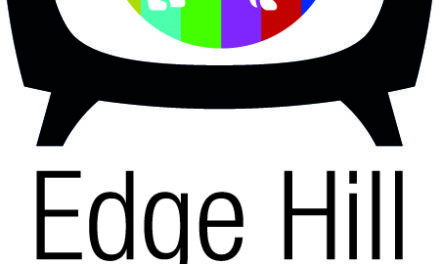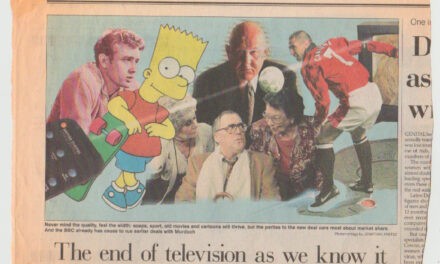I’m in the grip of politics fever. I can hardly concentrate; I want to know what is happening. Less than one week to go to the general election in the UK, and the two main political parties are neck and neck. I cannot do anything about the outcome of course – that would involve me spending approximately £1,000 on becoming British (and I am probably not the only person harbouring the suspicion that this sum is a means to ensure that only the ‘right’ kind of people apply). But even if I did have a vote, I wouldn’t be able to change anything: where I live, a northern, working-class city, in a predominantly working-class neighbourhood with good community relations to non-working-class sections, Labour has a 100% chance of winning the local seat of parliament. And unless something changes in our voting system, this will remain the experience for many of us. I have to admit, I am happy with that result. It’s perhaps not my preferred party, but my local MP does great work, and I’d much rather live under a Labour government than a Tory one.
In that respect, experiencing the difference between Labour and Tory, I am probably in a unique position. Until 2010, that was all the experience I had of living in the UK. In 1998, that still felt like hope. The Spice Girls were hip, as were Oasis and Blur. Devolution was on the cards and I was invited to cast my vote in the first Scottish parliamentary elections. Labour had just introduced the minimum wage, and that benefitted me enormously as I saw my wages rise by nearly 30%. By 2010 that didn’t feel like hope anymore and people had become highly critical. Indeed, the mass demonstration against the Iraq War in 2003 that was gleefully ignored by Blair led to a real sense of turning away from traditional politics. For me, this was also one of the moments when Scottish Independence became a more urgent demand: people in Scotland felt that they had a greater say in their local politics, where their national parliament used a proportional representation system, and the parties had learned to be more moderate and more inclusive in their decision making. But in England in particular, where the normal state of affairs has always been either Labour or Tory, by 2010 it felt like there was a need for change. And the only option was a Tory-led coalition.
But, trust me, living under a Tory Government isn’t particularly nice. Living in the North West of England, as I do, I can see it on a daily basis. The number of homeless people that are sitting and lying in line in front of Manchester Piccadilly Station is growing by the week; the number of people volunteering to look after them out of compassion for their desperate state is also thankfully growing, as is the resourcefulness of some of the campaigners working for them. Buildings are crumbling away, despite Liverpool’s gradual gentrification of the city centre, as is the rest of the infrastructure, including roads, but also trains which are being replaced by the disused ones from elsewhere (usually built in the 1980s and early 1990s – which, for us, still registers as an improvement). Food bank use has grown exponentially, as in the rest of the country, and it’s the disgrace of the fact that people cannot afford to feed themselves because their wages or benefits aren’t covering the basics anymore that was for me one of the most convincing moments in the Yes Scotland campaign:
Since at least the crash in 2008, wages have stagnated under the banner of austerity. In the name of deficit reduction, benefits have been cut and people sanctioned so that homelessness has become the only option. At the same time more and more of our vital services are under so much strain that they are under threat of collapsing. That includes the NHS, and is particularly noticeable in areas that have now been privatised out of the NHS. Friends of mine working in mental health, for example, are no longer able to provide their services because the toxic environment in which they have to work has affected their own mental health. Other services, such as those trying to help people in prison, are being closed down. It also includes one of Labour’s other flagship policies, namely the Sure Start Centres, which have given the most vulnerable families access to decent childcare services (including nurseries, but also significantly more) but are increasingly being closed down or are under threat of being closed down as local governments are struggling to find the money to run them. This has led to a rather touching report by John Harris about this wonderful city of mine which also highlights just how divided this country has become:
So, do you say, thanks for your opinion on the state of affairs, but why are you telling me all this on a blog dedicated to television studies?
I wanted to highlight that I am interested and I know some stuff. That’s why. But, and this is where television comes in: I am not using television as a source for my knowledge, and that to me is a real problem. I am avoiding the news, and I’ve only watched bits from the leaders’ debates and talk shows in order to be able to write this blog. Television’s representation of politics has nothing to do with those that matter to me at the moment. Of course, television, and the BBC, has come under scrutiny in the past already for its London-centric character, particularly in its representation of politics. Indeed, Labour’s drive to move parts of the BBC out of London and, amongst other places, into the North West was meant to counteract that. To be honest, though, I am not sure that worked particularly well, although BBC Breakfast does now report more often from the North West.
But, for me, that’s not the issue. The problem isn’t that the BBC or the other broadcasters are London-centric. Indeed, they can produce London-centric documentaries and highlight the things that I want to see, as this excellent documentary for Panorama (BBC, since 1953) indicates.
Rather, what annoys me about leaders’ debates, interviews in the news and political talk shows is just how much they are still marked by traditional masculine values: it’s about competition, talking each other down, showing who the best ‘man’ in politics is even when it’s a woman (no offense, Nicola Sturgeon). Indeed, the only moment that I could bear to watch in the debate of the opposition leaders on the BBC was the one at the end when the women from the SNP, the Greens and Plaid Cymru hugged each other, a picture that became widely shared because it resonated with so many.

One commentator argued that this was about creating an opposition between the three women and poor Ed Milliband who apparently also wanted a hug. But for me (and I wonder if others felt the same), it represented a moment of coming together, of emotional connection between these women. In other words, it wasn’t even about seeing the more progressive and left-leaning parties sharing that connection (the SNP’s manifesto, for example, doesn’t go anywhere near far enough for me). It was about the emotional connection between these people.
Of course this goes against everything that we traditionally want from our political leaders. They are supposed to be rational, decisive, strong, not emotional. But the best political decisions in the history of the UK were often based on emotion (including the creation of the NHS). And even the idea of ‘compassionate Conservativism’ (even if it seems to have been a ruse) was apparently based on true emotion. Indeed, it is our emotional reactions to the horror of the Holocaust, which is so wonderfully chronicled in the Hitchcock-directed documentary Night Will Fall (1948), that have made us behave with more compassion to those who we consider outsiders. And it is this compassion that is urgently needed not only in politics, but also in our representation of it.
That a somewhat more compassionate (or at least consensual) approach can actually work in a politician’s favour is evident in the continued popularity of Angela Merkel in Germany. I imagine quite a few on the left will suck in their breath at that thought. I wouldn’t vote for her either. Wrong party, lots of wrong ideas. But she has actually implemented quite a few policies that used to be the preserve of the left: under her leadership, we’ve seen the introduction of decent provision for maternity leave, for example; we’ve also seen the shift to a greater emphasis on green energy. Even the persistent bailing out of other European countries can be seen in that light. Yes, it comes with promises for austerity, but at least she’s not letting people hang out to dry as Cameron and his short-term plans of exiting the EU imply.
But for television, such a compassionate approach would mean something else: it would have to put people’s suffering into the foreground and move away from an emphasis on competition. I don’t need to see who can shout loudest: as we all know, Nigel Farage is likely to win that trophy, and his policies would ruin the country. But this approach has so far been adopted by the media, and hence we’ve seen the disproportionate representation of his party. Indeed, perhaps we would need to move away completely from an emphasis on party people, and instead focus on people’s everyday lives and how party policies interact with those. In that respect, The Guardian’s Personal Policy Guide was useful. However, it was still phrased in a way that emphasised the hunter mentality by focusing on ‘what… the parties [are] offering you’ (my Italics). But for me, at the moment, politics shouldn’t be about me. It should be about the vulnerable, about all of us, about us as a – problematically – increasingly divided society. Indeed, what I am looking for in my representations of politics is a recognition that politics is about the social, and our relationships to each other, and not about us, individually. And as the increasing number of radical solutions offered by small community groups seem to suggest, such a representation of a politics of compassion (which is what drives so much of the new political engagement) is clearly not just on my wish list.
Elke Weissmann is Reader in Film and Television at Edge Hill University. She is currently considering changing this to Reader in Television and Film, however. Her books include Transnational Television Drama (Palgrave) and the edited collection Renewing Feminisms (I.B.Tauris) with Helen Thornham. She is vice-chair of the ECREA TV Studies Section and sits on the board of editors for Critical Studies in Television. She migrated to the UK in 2002 after realising that German television was as bad as she remembered.




